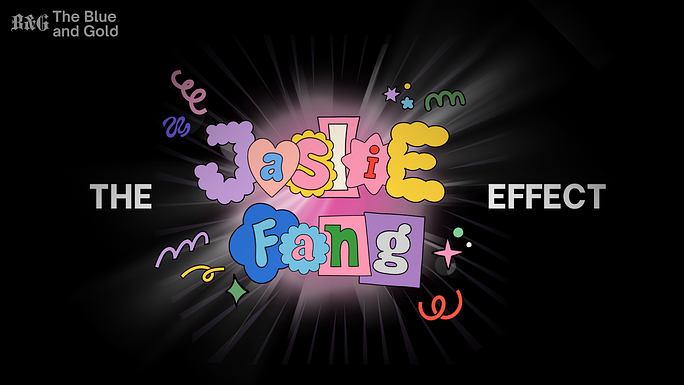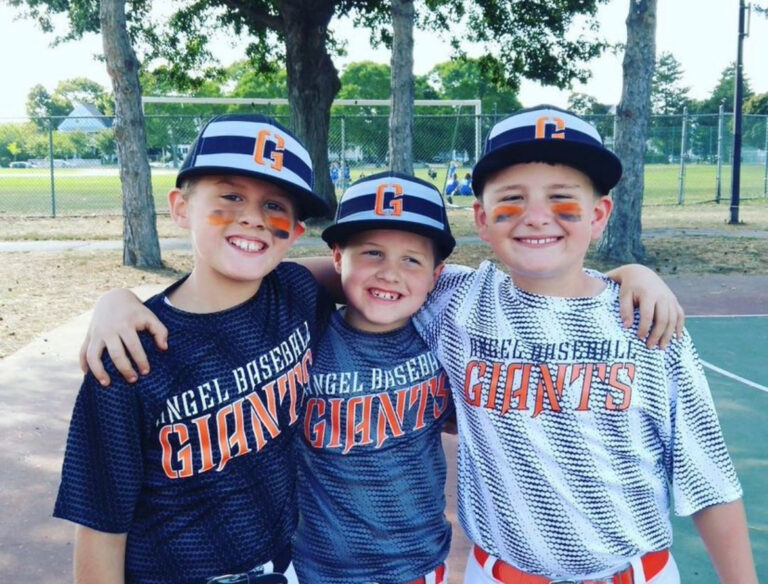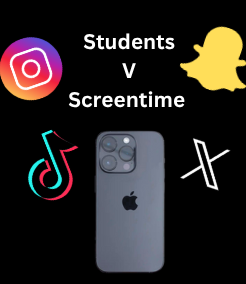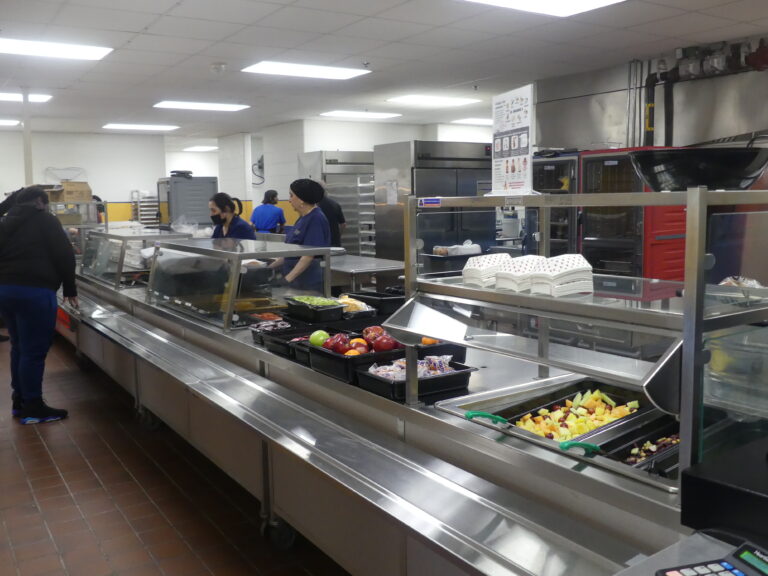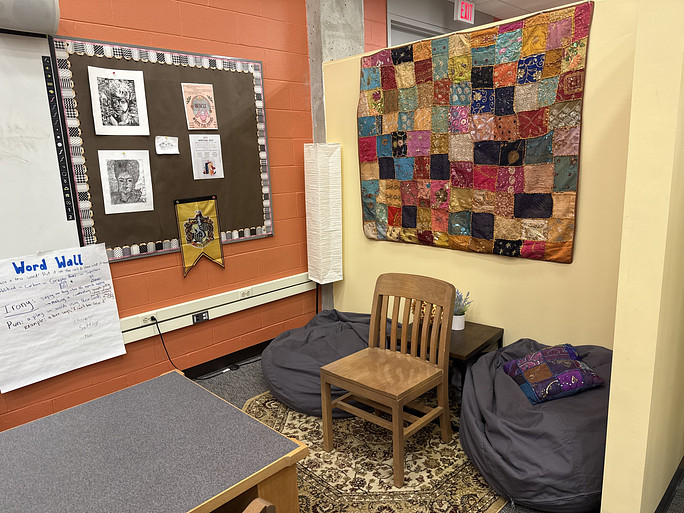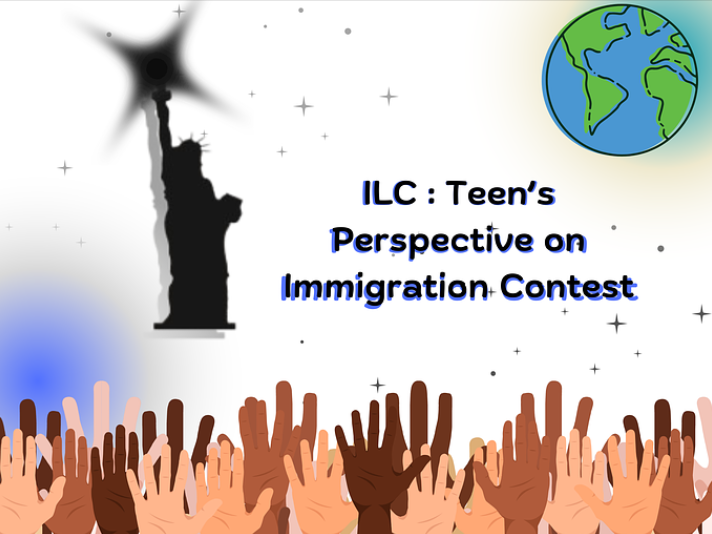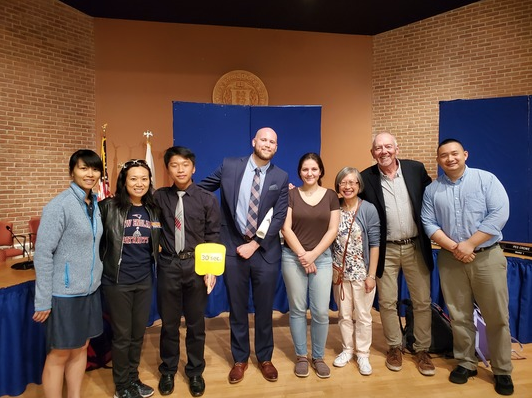
Editor in Chief Ana Pirosca at the mayoral debate.
Anyone who has worked with young adults knows that teens have a lot of opinions. Talk to almost any student at Malden High and they will have opinions on a variety of different things from pocket sizes to politics.
The issue with academia on a secondary level of education is that school only teaches students in terms of hypotheticals or the future; “if you want to do this, then…”, or, more popular, “if you go to college and do this, then…”. With hypotheticals, there is no tangible impact, yet as emerging adults, we are becoming increasingly interested and vocal about “real” life and by not addressing current events in an academic context, it is difficult for students to feel as though their opinions are valid.
For example, an overheard discussion in the Student Study Center focused on whether this particular group was in favor of supporting and listening to Kanye West despite their particular distaste to Kanye’s relationship with President Donald Trump. However trivial and niche this conversation may be to adults, these students were actually talking about the ethics of involving popular media in politics, an issue that can consume many a scholar. Simply because these students lack the sophistication and the “proper” way to communicate their ideas, does not mean that their insights are in any way less significant.

I joined the Blue and Gold my freshman year because I was excited to finally make a statement. I had so many opinions, ideas, and aspirations that I wanted to voice on a public forum somehow, some way. Thankfully, I got just that. From writing articles, making videos, sending emails and scheduling interviews, this newspaper allowed me to channel my personality in ways that normal academia could not.
As a student run newspaper, I think we hold a very special position in the community. The Blue and Gold uniquely combines the thoughts and ideas of young people, while also attempting to thoughtfully portray the adult world surrounding us. It is a perfect intersection between the concrete world and the voice of the students that inhabit it. It provides a platform for students to talk about their opinions on topics that are usually ignored.
In a similar way, children also have opinions that should be valued but often are not. Adored host, reverend, and friend, Fred Rogers said, “a child is appreciated for what he will be”: lawyers, and businessmen, teachers, or doctors. Since children, like teenagers, lack the sophistication to explain their thoughts, and are held in a general view that they know very little, the value of a child is not to be a child, but a potential adult whose voice is only valid after years of experience. This is why movements led by students (children and teens) are far more effective than others; it defies the odds—in an adult dominated world, if younger people feel compelled to talk about issues, there must be some bearing on the topic.
With heavy topics living in the current climate of our world, especially in politics, more students are becoming involved in issues that they care about. Recently, students took a stand in Boston about climate change; other students took a stand on the ICE raids occurring across the country. Though let us also not forget less recent student protests against gun violence that happened two years ago, and the historical March for Freedom that joined together older and younger people alike for national change that affects us to this day. Student voices are powerful.
This October I was given the opportunity to participate in a panel for the Malden City Councilor At Large Forum, representing the Blue and Gold. What gives me pride in this city is the idea that I attended a local event voicing opinions of people such as myself. I was appreciated for being a student, and the questions I posed were taken as important. As I spoke with some friends at this event and the previous Mayoral Forum, in which a freshman at Malden High School spoke as a member of the panel as well, I was told that there was some discussion on including a young person’s voice on the panel, despite their inability to vote. Ultimately, it was decided that “the younger crowd” needed to be represented in some way.
This is a significant change that would not have been considered years ago. Perhaps Mr. Rogers is not entirely correct—perhaps children are becoming increasingly valued for being children, perhaps their voices are being heard in the murmur of a background to an entire nation.
In the following pages and following editions, what our students feel is important. It is our goal to make every student’s voice feel heard and honored within the restraints of journalism. For me, this journalism class isn’t about getting a grade; it’s about students in this class feeling empowered.
Journalism has a stance that parallels the power of students who take action. Both need to do their respective duties with integrity in order to successfully influence an entire nation. Though many people may remark about how the media is now covered with “fake news”. There are many reasons why this event has occurred—I believe it is mostly because a lot of news sources, especially those on television, only care about the monetary aspect of their jobs. The lack of integrity for the effort of producing good quality journalism in so many places is apparent to everyone.
This is what I, as editor in chief, want to avoid. It is not about the grade—it’s about working with a level of honesty and integrity that might influence future journalists and public broadcast spokespeople. While teachers may raise the next generation of hard workers, I hope that I have a say in showing my fellow classmates that there is so much more to it—finding a passion, finding a voice, and trying as hard as possible to make it heard.

